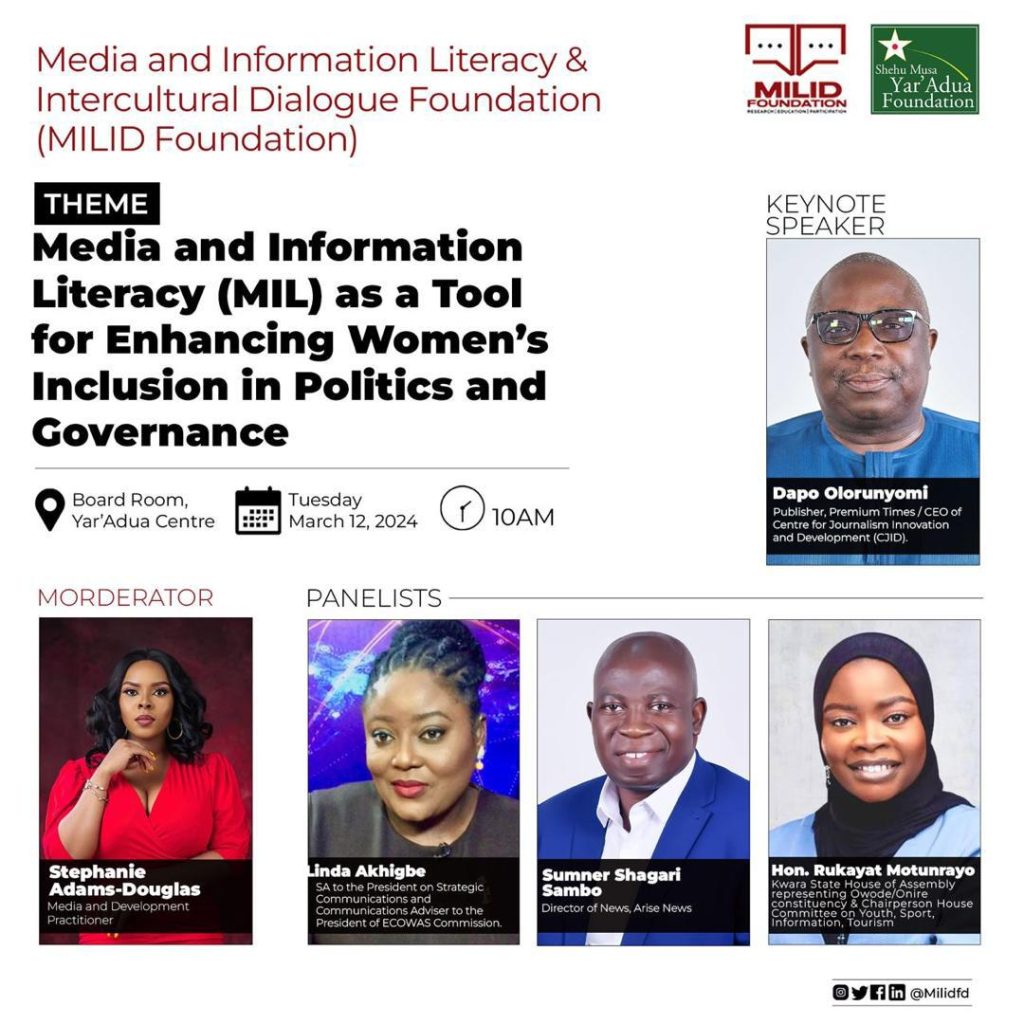Stephen Ukandu, Umuahia
The Media and Information Literacy and Intercultural Dialogue Foundation (MILID Foundation), will on Tuesday, host an intergenerational dialogue on how the media affects women’s inclusion in politics and governance in Nigeria.
Media entrepreneur and publisher of Premium Times, Dapo Olorunyomi, will deliver a keynote speech at the event with the theme, “Media and Information Literacy as a tool for enhancing women’s inclusion in politics and governance.”
Executive Director, MILID Foundation, Chiamaka Okafor, in a statement, said “media play a dominant role in defining the subordinate role that women play in politics and governance.”
The statement made available to Ikengaonline read in part: “The way the media constructs the ability and capability of women, which over time are accepted as the norms, including by women themselves, whose psyche is also defeated, determines the shape and level to which women can aspire.”
According to the statement, the event will be held at the Yar’Adua Centre in Abuja and will also host an intergenerational panel featuring Linda Akhigbe, Special Assistant to the President on Strategic Communications and Communications, and Adviser to the President of ECOWAS Commission; and Sumner Sambo, Director of News Arise TV.
Other panelists include: Rukayat Shittu, member Kwara State House of Assembly representing Owode/Onire constituency and Hon. Simon Karu, former member of the House of Representatives.
The statement explained that Media and Information Literacy (MIL) provides a nuanced understanding of issues of gender equality in politics and governance and the effect of lack of inclusion.
“MIL provides an opportunity to advocate women’s involvement in government as well as the importance of inclusion in the socio-political development of any nation.
It also provides critical thinking and understanding skills to tackle many issues affecting women.”
The statement further read: “In exploring the interface between MIL and women’s inclusion in politics and governance, we need to understand how the media accounts for many of the biases constructed against women.
“To solve these challenges, it is important to understand media messaging when it comes to inclusion to reshape the narrative and build the capacity of women and women groups using the core principles of MIL, including critical thinking, the ability to access media and information, critical analysis and ability to produce media and information to create counter/alternative narratives that give women a chance and show in positive light their capacity and potential when included in politics and governance.”

